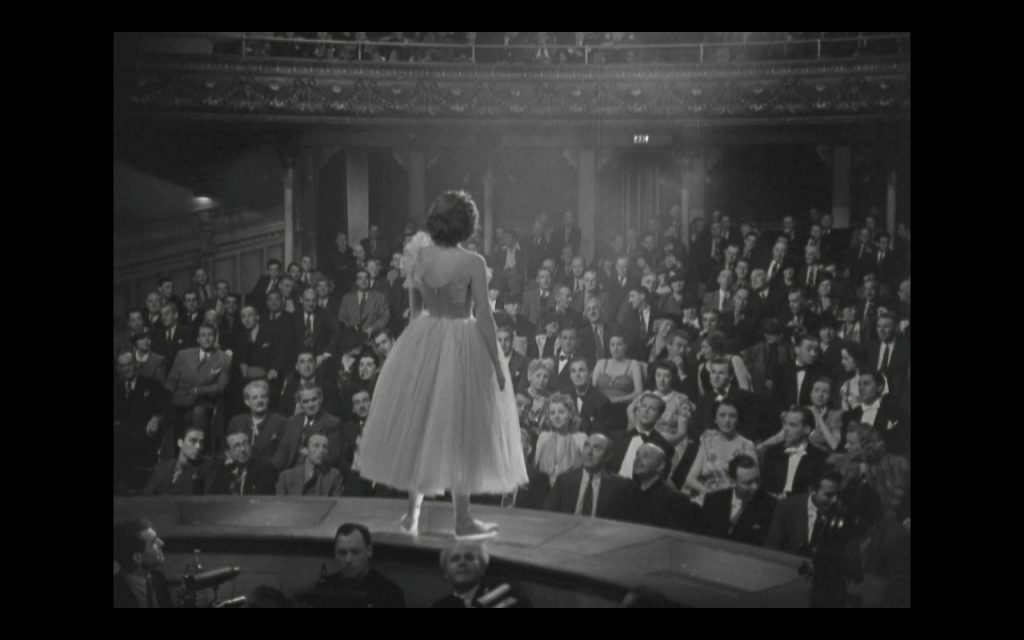In the Netflix extravaganza Hollywood, showrunner Ryan Murphy imagines Tinseltown in its 1940s heyday, where the censorious Hay’s Code does not exist and women, gays and people of colour have no prejudice to battle and no impediment to success. One of the real-life characters in the show is pioneering lesbian film director Dorothy Arzner, who started as a typist, then worked on continuity and editing, graduating to directing in the 1930s. Even today, she holds the record as the most prolific female Hollywood director of all time. She was also the first woman in the Hollywood Directors Guild and, during the early talkies, invented the boom mic.
Dance, Girl, Dance is arguably her best picture (although Christopher Strong and Craig’s Wife could perhaps be said to be more interesting). It’s a backstage romance with a somewhat turgid boys-meet-girls plot. Redhead Lucy (Maureen O’Hara) and blonde Bubbles (Lucille Ball) start life dancing in a hoochie-coochie club in Akron, Ohio. Lucy has dreams of becoming a ballerina, but Bubbles knows how to butter her bread. After assorted men get in the way (and then get the heave-ho), the two women graduate to a burlesque theatre in New York. “Give ’em all you got,” says a stagehand in the wings. “They couldn’t take it!” Bubbles snaps back.
Changing her name to Lily White, the blonde becomes a big draw. She talks the management into hiring her gal pal and Lucy becomes Lily’s stooge, coming on with a spot of high-class ballet after Lily’s strip routine, which gets the largely-male audience riled up, demanding more of Lily White’s lily-white flesh.
It would be difficult to see Dance, Girl, Dance as having proto-feminist credentials, even despite its trailblazing lesbian director. That said, there’s a memorable scene when Lucy halts proceedings at the burlesque theatre and dresses down the ugly, leering men in the audience: “I know you want me to tear my clothes off so you can look your 50 cents worth… what do you suppose we think of you up here [on the stage]? I’m sure your wives see through you just like we do!”
This is not a great film, but the performances of tough-talking, gold-digging Ball and the melting, tempestuous O’Hara, both of whom wear a succession of great hats, are worth the admission price. The photography is directed by Russell Metty and comes out crystalline on this Criterion Collection Blu-ray.
But it’s what the movie represents in cinematic history that makes the film especially interesting. It was Arzner’s penultimate movie; she went on to teach filmmaking at UCLA and Francis Ford Coppola was one of her most avid students, singing her praises in a featurette on the disc. Despite being rediscovered by feminism in the 1970s – notably at the 1972 Edinburgh International Film Festival – Arzner has been shamefully neglected over the years.
Maureen O’Hara had a long career (she was a favourite of director John Ford) as a reliable and striking female lead. Lucille Ball became one of the most successful women in television history. A gifted comedienne in her own slapstick TV show (which started in 1951 and was in rerun forever after) she founded her own production company (with her husband) and bought RKO Pictures which had made Dance, Girl, Dance. It became Desilu Productions and made independent TV shows including Star Trek in the mid-1960s, also in rerun forever. Eat your heart out, Netflix.
Available on Blu-ray on Mon 29 Jun 2020
